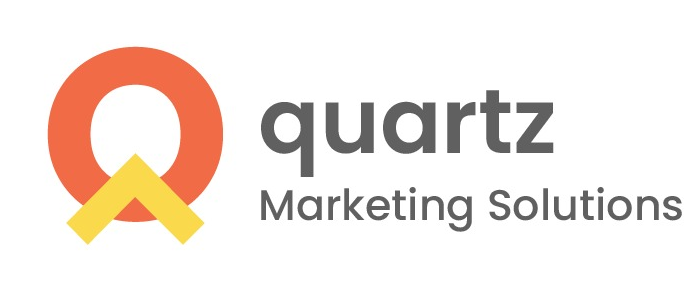In today’s fast-moving digital world, choosing the best mobile app frameworks 2025 is a decision that can make or break your business’s mobile presence. Whether you’re a startup or a growing company, building a mobile app requires careful planning, and the framework you choose directly affects development speed, app performance, scalability, and the overall user experience.
This blog breaks down key mobile development options like React Native, Flutter, and others, while guiding you on what to consider when choosing between native vs hybrid apps, and how cross-platform development and user interface design impact success. Let’s help you navigate your options and pick the perfect tech for your business in 2025.
Understanding the Importance of Mobile App Frameworks
Frameworks serve as the backbone of any mobile application. They provide the structure, tools, and libraries developers need to build robust, responsive, and intuitive apps. The best mobile app frameworks 2025 are those that balance development efficiency with the quality and performance modern users expect.
With mobile usage at an all-time high, businesses can’t afford to compromise on app performance or functionality. And that’s exactly where frameworks like Flutter and React Native shine.
React Native: A Powerful Player in Cross-Platform Development
Developed by Facebook, React Native is one of the most popular choices among businesses for building apps that work seamlessly on both iOS and Android.
Why Choose React Native?
- Cost Efficiency: React Native supports cross-platform development, allowing you to write one codebase for both major platforms, cutting down development time and cost.
- Strong Community: With thousands of developers contributing, it’s easy to find resources, libraries, and tools.
- Smooth UI: While not fully native, React Native apps can achieve near-native user interface design performance.
Native vs Hybrid Apps: Making the Right Choice
One of the most debated topics in mobile development is native vs hybrid apps. Both have their merits, and the right choice often depends on your specific business needs.
Native Apps
- Built separately for iOS and Android using platform-specific languages (Swift, Kotlin).
- Offer superior app performance and deep device integration.
- Costlier and more time-intensive to develop.
Hybrid Apps
- Built using frameworks like Flutter or React Native.
- Share a single codebase across platforms.
- Faster development, but may lack full native functionality.
In 2025, understanding the nuances of native vs hybrid apps will be critical. If your app demands high security, frequent updates, or complex animations, native may be worth the investment. Otherwise, hybrid can offer significant advantages.
When to Use React Native?
React Native is great for companies that need fast market entry and value code reusability. It appears on nearly every list of best mobile app frameworks 2025 for good reason.
Flutter: Google’s Answer to High-Performance Apps
Flutter, powered by Google, is another excellent choice. It uses the Dart programming language and has seen rapid adoption for businesses needing sleek designs and strong performance.
Why Choose Flutter?
- Exceptional UI Capabilities: With its widget system, Flutter is designed for beautiful and flexible user interface design.
- Native-like Performance: Flutter apps are compiled directly to machine code, offering outstanding app performance.
- One Codebase: Like React Native, it supports cross-platform development without sacrificing too much on speed or aesthetics.
Flutter has firmly cemented its place among the best mobile app frameworks 2025, especially for startups looking for both form and function.
The Role of App Performance in User Retention
In a world where users abandon slow or buggy apps in seconds, app performance has become a top priority. Your app must be fast, responsive, and crash-free.
Both Flutter and React Native offer competitive performance for most business applications. However, native development still leads when it comes to high-performance needs, such as gaming or AR/VR apps.
Remember, the best mobile app frameworks 2025 are those that provide the perfect balance between speed, stability, and user experience.
Why Cross-Platform Development Is a Smart Move
With rising development costs and tight timelines, cross-platform development has become a go-to solution for businesses of all sizes. Instead of building separate apps for each platform, a single codebase can do the trick.
Benefits include:
- Lower costs
- Faster time to market
- Easier maintenance and updates
As frameworks like Flutter and React Native mature, the trade-offs between native vs hybrid apps continue to shrink. Cross-platform is here to stay—and it’s likely to dominate the landscape of the best mobile app frameworks 2025.
User Interface Design: The Key to Customer Satisfaction
An intuitive, sleek, and engaging user interface design keeps users coming back. Whether you’re building an eCommerce app or a service booking platform, UI is more than just aesthetics—it’s about user experience.
Both Flutter and React Native give developers the flexibility to create immersive UI that feels modern and native. Combined with strong app performance, an appealing interface enhances trust, usability, and brand loyalty.
In 2025, as user expectations evolve, a framework’s ability to support flexible user interface design will heavily influence its rank among the best mobile app frameworks 2025.
Final Thoughts
Choosing the right mobile development framework is no small task. As we move deeper into 2025, tools like React Native and Flutter continue to dominate conversations around cross-platform development, app performance, and user interface design.
Your decision will ultimately depend on your budget, timeline, target audience, and app complexity. But one thing’s certain: your mobile strategy will define how users interact with your brand.
At Quartz Marketing Solution, we help businesses make informed tech choices and build powerful, user-centric apps. Whether you’re comparing native vs hybrid apps, evaluating React Native vs Flutter, or looking for the best mobile app frameworks 2025, our experts are here to guide you.
Let’s Build Something Great Together
Reach out to Quartz Marketing Solution to get started on your mobile journey today.
FAQs: Mobile App Development & Best Frameworks in 2025
What are the best mobile app frameworks 2025 for businesses in the USA?
The best mobile app frameworks 2025 include React Native and Flutter. Both offer robust support for cross-platform development, strong app performance, and great user interface design, making them top choices for companies looking to scale efficiently across platforms.
How do I decide between native vs hybrid apps for my business?
Choosing between native vs hybrid apps depends on your goals. Native apps deliver superior app performance and deep integration but are more expensive and time-consuming. Hybrid apps, built with frameworks like Flutter and React Native, enable faster development and are ideal for reaching both iOS and Android users quickly.
Why is app performance so critical in mobile development?
App performance directly impacts user retention, satisfaction, and brand perception. In 2025, users expect apps to load fast, run smoothly, and respond instantly. Choosing high-performance frameworks like React Native or Flutter helps ensure your app delivers on those expectations.
What is cross-platform development, and how does it help businesses?
Cross-platform development allows you to build one app that works on both iOS and Android from a single codebase. It reduces costs, shortens time to market, and simplifies maintenance. It’s a key reason why Flutter and React Native are among the best mobile app frameworks 2025.
How important is user interface design in mobile apps?
User interface design is essential. A clean, intuitive UI keeps users engaged and enhances usability. Frameworks like Flutter and React Native support custom and dynamic UI components, helping you create a smooth user experience that aligns with your brand.


